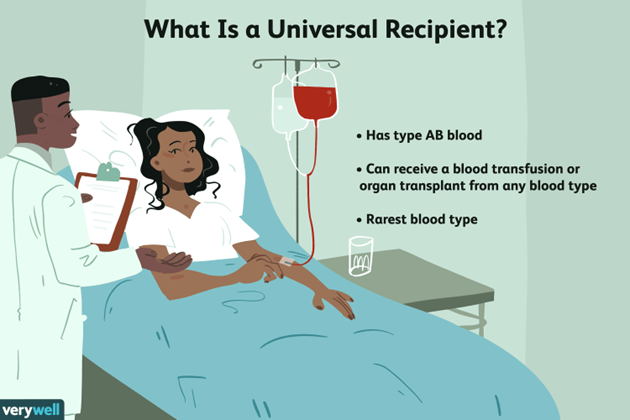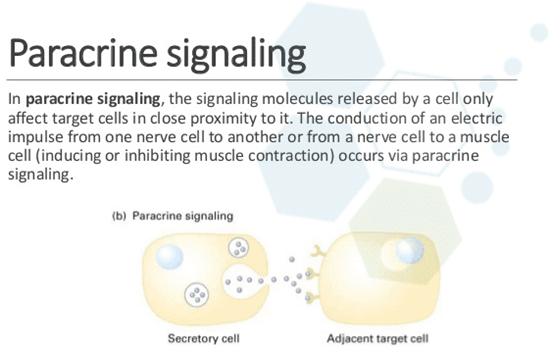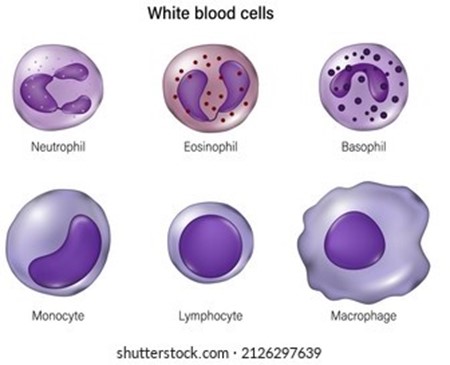Persons with type AB blood are sometimes called universal donors.
True
False
The Correct Answer is B
Persons with type AB blood are sometimes called universal recipients, not donors. This means they can safely receive a blood transfusion using any other blood type. Choice A is wrong because it confuses type AB blood with type O negative blood.
Type O negative blood is considered the universal donor type because it has no antigens on the surface of red blood cells and can be given to people of any blood type.
Type AB-positive blood is also considered the universal plasma donor type because it has both A and B antigens and can be given to patients with any blood type.
Plasma is the liquid part of blood that carries cells and proteins throughout the body.
The presence or absence of antigens and the Rh factor determine how a person’s immune system reacts to a blood transfusion or organ transplant.
Antigens are substances that can trigger an immune response if they are foreign to the body.
The Rh factor is a protein that can be either present (+) or absent (-) on the surface of red blood cells.

Nursing Test Bank
Naxlex Comprehensive Predictor Exams
Related Questions
Correct Answer is D
Explanation
Paracrine secretions are chemical signals that affect only nearby cells.

They are released by the sending cell and diffuse through the extracellular space to the target cell, which has a specific receptor for the signal.
Paracrine signaling is a form of local signaling that occurs in multicellular organisms.
Choice A is wrong because autocrine secretions are chemical signals that act on the same cell that produced them.
Autocrine signaling is also a form of local signaling, but it involves cell signaling itself.
Choice B is wrong because endocrine secretions are chemical signals that are secreted into the blood and act at long distances.
Endocrine signaling is a form of long-range signaling that involves ductless glands that secrete hormones.
Choice C is wrong because exocrine secretions are non-hormonal substances that are secreted into ducts to the external environment.
Exocrine signaling is not a form of cell-cell communication, but rather a way of releasing substances such as sweat, saliva, or digestive enzymes.
Correct Answer is C
Explanation
This type of blood cell is a granulocyte that has a bi-lobed nucleus and red granules in the cytoplasm.

Eosinophils are involved in allergic reactions and parasitic infections.
Choice A is wrong because basophils are granulocytes that have a lobed nucleus and dark blue or purple granules in the cytoplasm.
Basophils are involved in inflammatory responses and histamine release.
Choice B is wrong because lymphocytes are agranulocytes that have a large round nucleus and a thin rim of cytoplasm.
Lymphocytes are involved in immune responses and produce antibodies.
Choice D is wrong because monocytes are agranulocytes that have a kidney-shaped nucleus and a pale blue cytoplasm.
Monocytes are involved in phagocytosis and tissue repair.
Choice E is wrong because neutrophils are granulocytes that have a multi-lobed nucleus and pale pink granules in the cytoplasm.
Neutrophils are involved in bacterial infections and inflammation.
Whether you are a student looking to ace your exams or a practicing nurse seeking to enhance your expertise , our nursing education contents will empower you with the confidence and competence to make a difference in the lives of patients and become a respected leader in the healthcare field.
Visit Naxlex, invest in your future and unlock endless possibilities with our unparalleled nursing education contents today
Report Wrong Answer on the Current Question
Do you disagree with the answer? If yes, what is your expected answer? Explain.
Kindly be descriptive with the issue you are facing.
